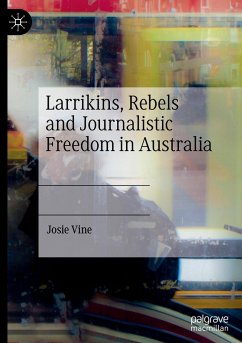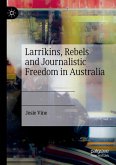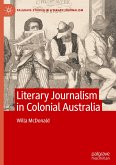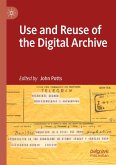Larrikins, Rebels, and Journalistic Freedom is a cultural history of Australian journalism. In a democratic nation where a free news media is not guaranteed, Australian journalism has inherited what could be described as a 'Larrikin' tradition to protect its independence. This book mines Australian journalism's rebelliousness, humor and distinct disrespect for authority in various socio-historical contexts, to explore its determination to maintain professional independence. Beginning with a Larrikin analysis of Australian journalism's inherited Enlightenment tradition, Dr Josie Vine takes the reader through the Colonial era's hardships, Federation, two World Wars, the Cold War's fear and suspicion, the swinging sixties, a Prime Minister's dismissal, 1980's neo-liberalism, post-9/11 and, finally, provides a conclusive synthesis of current Australian journalism culture. Throughout, the book highlights the audacious, iconoclastic and determined figure of the Larrikin-journalist,forever pushing boundaries to protect democracy's cornerstone - freedom of the news media.
"Book-length histories of Australian journalism are still relatively rare, but what makes this new arrival particularly welcome is the way in which it is structured around an exploration of the 'Larrikin paradox'. This refers to the fact that although Australian journalism may profess to be 'professional' and 'reputable', it can also be raucous, unruly and disrespectful in pursuit of what it sees as its democratic purposes. The Larrikin may be a uniquely Australian figure but the paradox is far from confined to Australian journalism (not least because of the influence of erstwhile Australian Rupert Murdoch on journalism in the Anglosphere), and this book should be of considerable interest to those concerned with the means whereby journalism performs its democratic, Fourth Estate role in modern democracies. This is an extremely very well-informed and highly insightful work which ought to appeal equally to those interested in journalism and in Australian politics."
- Julian Petley, Professor, Brunel University London, UK
"Book-length histories of Australian journalism are still relatively rare, but what makes this new arrival particularly welcome is the way in which it is structured around an exploration of the 'Larrikin paradox'. This refers to the fact that although Australian journalism may profess to be 'professional' and 'reputable', it can also be raucous, unruly and disrespectful in pursuit of what it sees as its democratic purposes. The Larrikin may be a uniquely Australian figure but the paradox is far from confined to Australian journalism (not least because of the influence of erstwhile Australian Rupert Murdoch on journalism in the Anglosphere), and this book should be of considerable interest to those concerned with the means whereby journalism performs its democratic, Fourth Estate role in modern democracies. This is an extremely very well-informed and highly insightful work which ought to appeal equally to those interested in journalism and in Australian politics."
- Julian Petley, Professor, Brunel University London, UK








